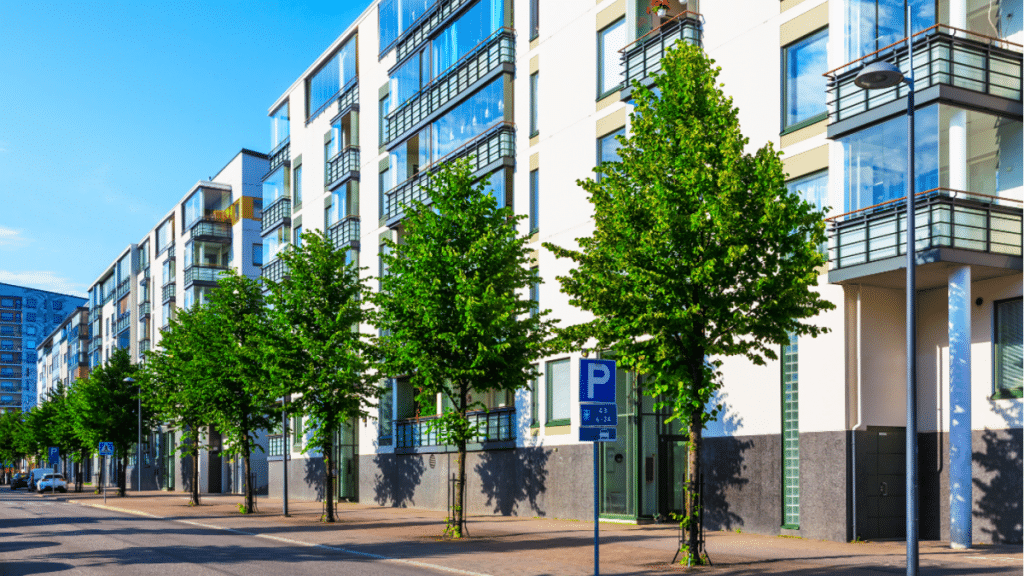To come into commercial real estate investing, you must have done the necessary groundwork. The field of commercial real estate investment is vast and varied, with numerous opportunities to make money. However, with the required amount of capital, going into commercial real estate is no walk in the park. This is why having a solid understanding of the fundamentals and best practices is crucial to ensure success in this industry.
In this article, we’ll dive into the basics of commercial real estate such as what it is, its benefits and challenges, and the necessary steps to take to get started in this field (or if you have the guts and the pocket to plunge in)!
Are You Even Ready?
Aside from the huge capital requirement, commercial real estate investment also requires a significant amount of time, effort, and mental fortitude. We say mental fortitude because investing in this industry can be daunting and stressful. Dealing with properties, tenants, and market conditions requires a level head and the ability to make wise decisions under pressure.
Before diving into commercial real estate investment, take a step back and ask yourself if you are ready for the commitment to this type of investment. If the answer is no, then it’s best to do further research and education before jumping in. Feel free to take a real estate investment course or attend seminars to gain more knowledge and insights about the industry.
What is Commercial Real Estate?

Commercial real estate refers to any non-residential property used for business purposes. This can include office buildings, retail spaces, industrial properties, hotels, and other types of commercial establishments.
Investing in commercial real estate means buying or leasing a property to make money from it. The idea is to earn a return on your investment through rental income or by selling the property for more than you paid for.
Benefits of Commercial Real Estate Investment
The benefits of investing in commercial real estate is very obvious–it has a high potential for returns as compared to rental income from residential properties. But, aside from that we’ll just do a quick breakdown what else investors can gain from it.
- Consistent income: Commercial properties usually have longer lease terms and higher rental rates, which means a more stable and consistent flow of income for investors.
- Diverse portfolio: Investing in commercial real estate provides diversification to one’s investment portfolio, reducing overall risk.
- Appreciation in value: As with any property investment, there is always the potential for appreciation in value over time. With commercial real estate, this can be even more significant due to its location and market trends.
- Tax deductions: As per the IRS, if you have a rental property, you can deduct expenses associated with that property such as mortgage interest, insurance, maintenance and repairs, and property taxes.
Risks of Commercial Real Estate Investment
As cliche, as this may sound, no investment is without risks. Commercial real estate investment comes with its own set of potential risks that investors should be aware of.
- Higher upfront costs: The initial cost of purchasing a commercial property can be significantly higher than residential properties. This means investors need to have a larger sum of money saved up or have access to financing options to afford the purchase.
- Vacancy rates: A vacant commercial property means no rental income, and this can happen if businesses close down or move out due to economic downturns or changes in market demand.
- Market fluctuations: Just like any other investment, the value of commercial properties can also fluctuate depending on market trends and economic conditions.
Types of Commercial Real Estate Investments
Offices
Office buildings are one of the most common types of commercial real estate investments. They can range from small single-story buildings to large high-rise structures. These properties may be leased out to businesses or organizations for use as office spaces.
Retail Spaces
This category covers places like shopping centers, malls, and other retail spots where businesses sell goods and services directly to consumers.
Industrial Properties
Industrial properties refer to warehouses, manufacturing plants, distribution centers, and other properties used for industrial purposes. They are typically located in areas with easy access to transportation routes for shipping and receiving goods.
Multi-Family Properties
Multi-family properties include apartment complexes, condominiums, townhouses, and other residential rental properties with multiple units. They are considered commercial real estate investments because they generate income from tenants.
Mixed-Use Properties
Mixed-use properties combine residential, commercial and/or industrial spaces in one building or development. This allows for a diverse range of tenants and can mitigate risk by spreading out potential vacancies across different types of tenants.
What to Look For in a Commercial Real Estate Investment?
Okay, let’s say you’ve read all there is, your mind’s ready, your pocket’s fat and you’re ready to invest in commercial real estate. What should you look for?
1. Location
As with any real estate investment, location is key. A prime location can lead to higher demand and therefore higher rental rates or property values. You might get offered very low deals to areas with less demand and sometimes it could be hard to refuse, but remember that your location can greatly affect the success of your investment. You should always check for demographics, market trends and the overall economic health of the area before investing.
2. Property Condition
If you’re purchasing a property that already exists, make sure to inspect its condition. The last thing you want is to invest in a property with major structural issues or costly repairs. Consider hiring a professional inspection team to thoroughly evaluate the property before making a purchase.
3. Tenant Quality and Stability
If you’re buying an income-generating commercial property, it’s important to consider the quality and stability of the tenants. What kind of people reside in the area? What is their income level? Are they long-term tenants or do they frequently move out? These are important factors to consider as they can greatly impact your rental income and overall success of the investment.
If you’re getting a commercial space, what type of people frequent the area? Is it in a business district? A shopping center? A restaurant hub? Knowing the type of clientele that typically visit the area can help you determine the potential success of your business.
4. Market Demand
Before investing, it’s crucial to research and understand the current market demand for commercial real estate in the area. Is there a high demand for rental properties or an abundance of vacancies? Are businesses thriving in the area or struggling? Consider speaking with local real estate agents and other investors to gain insight on the current market trends and predictions for future growth.
5. Potential for Growth and Development
In addition to considering current market demand, it’s important to also look at the potential for growth and development in the area. Are there any major developments or infrastructure projects planned for the future? Are big developers also investing in the area? These can all be indicators of potential growth and can greatly impact the value and success of your investment.
6. Legal Considerations
When it comes to commercial real estate, there are often more legal considerations compared to residential properties. This includes zoning laws, building codes, environmental regulations, and lease agreements. It’s important to thoroughly review and understand all legal aspects before making a purchase. Consulting with a lawyer or experienced real estate professional can also help ensure that you’re fully aware of any potential risks or liabilities.
Making the Decision
After thoroughly considering all the factors mentioned above, it’s time to make a decision. Remember that investing in commercial real estate is a long-term commitment and should not be taken lightly. Careful research and due diligence are crucial in making an informed decision and minimizing risks.
And again, if you’re unsure or feel overwhelmed, it’s always a good idea to seek advice from experienced professionals or educate yourself further through reputable sources or enroll in a real estate investment course. So, take your time, do your research and all the best in your commercial real estate ventures!
